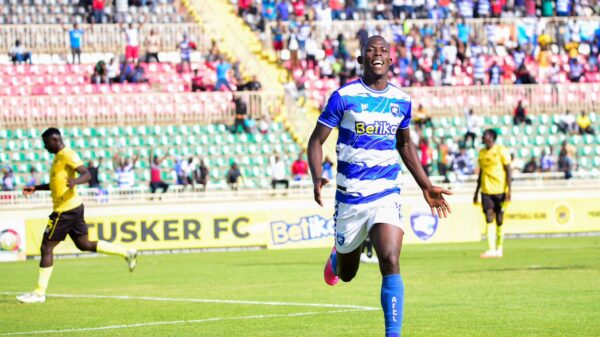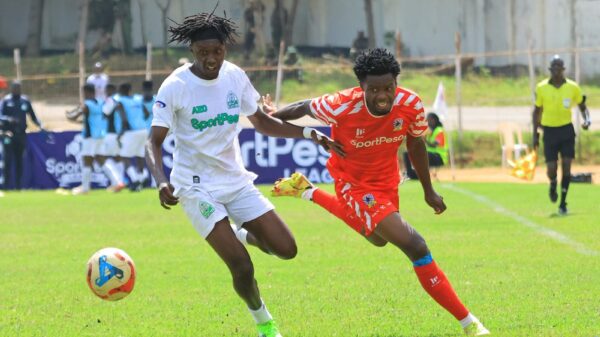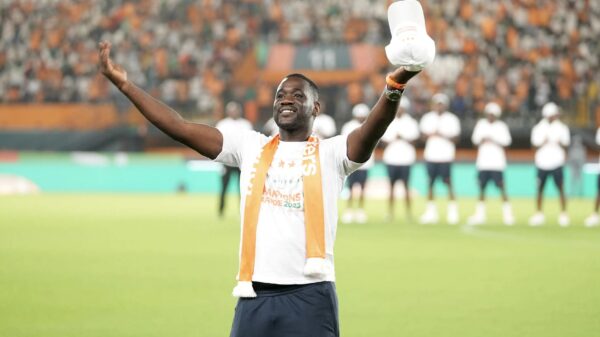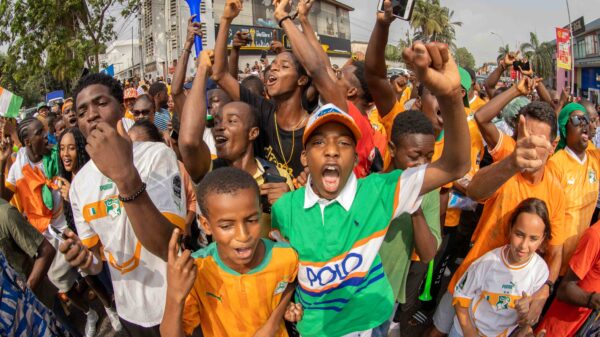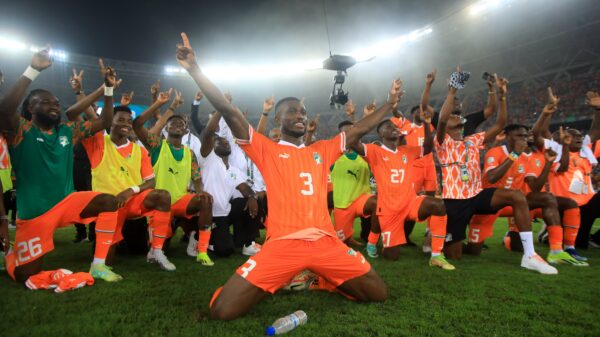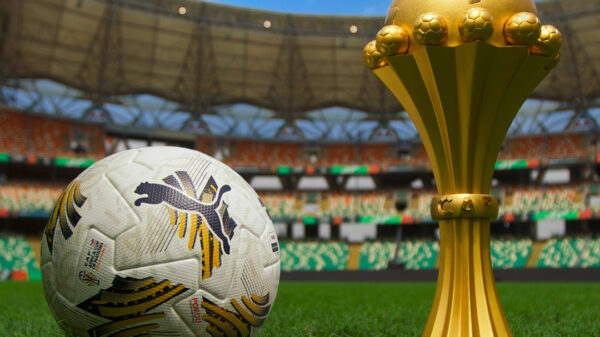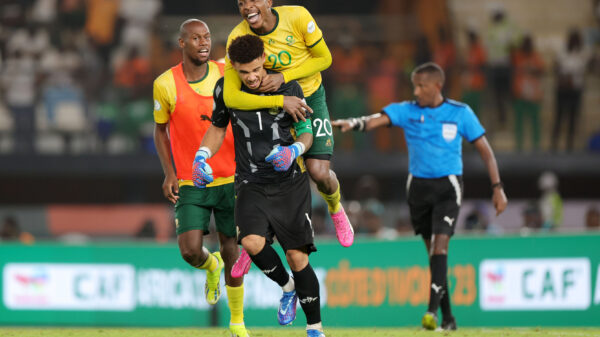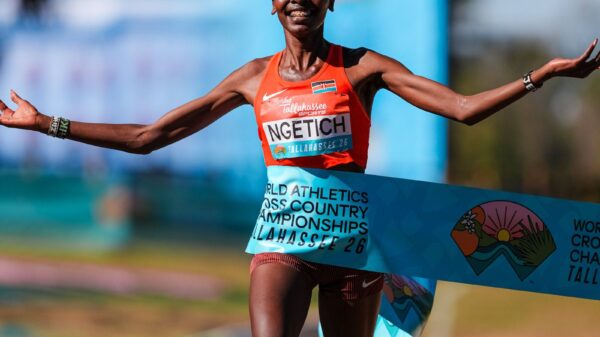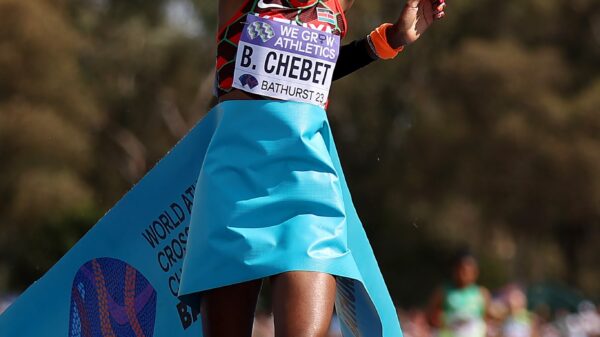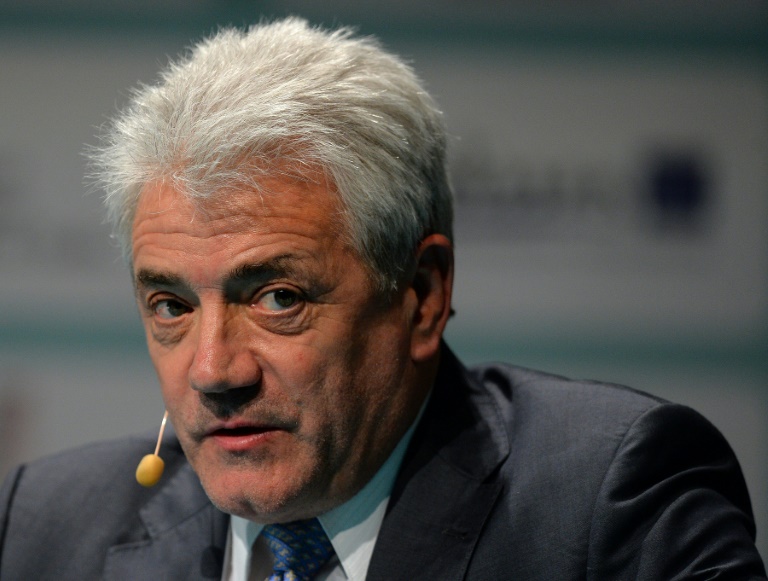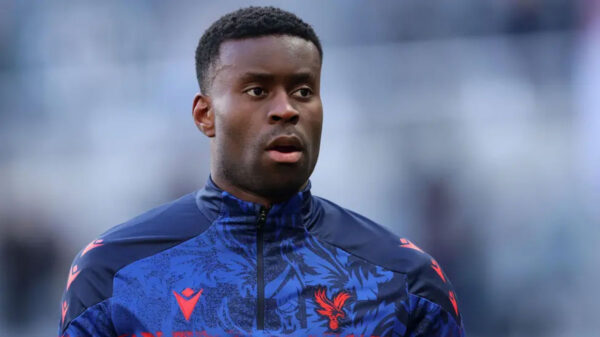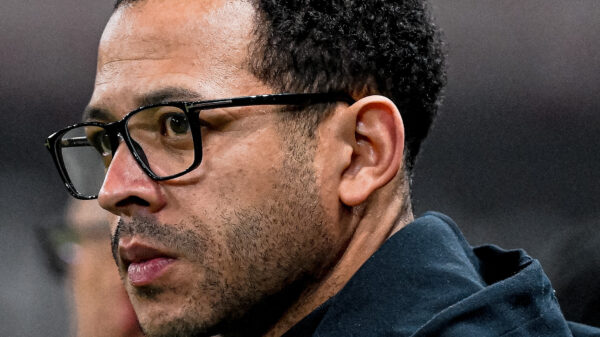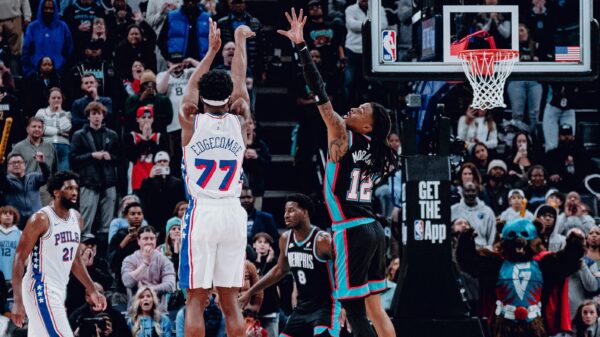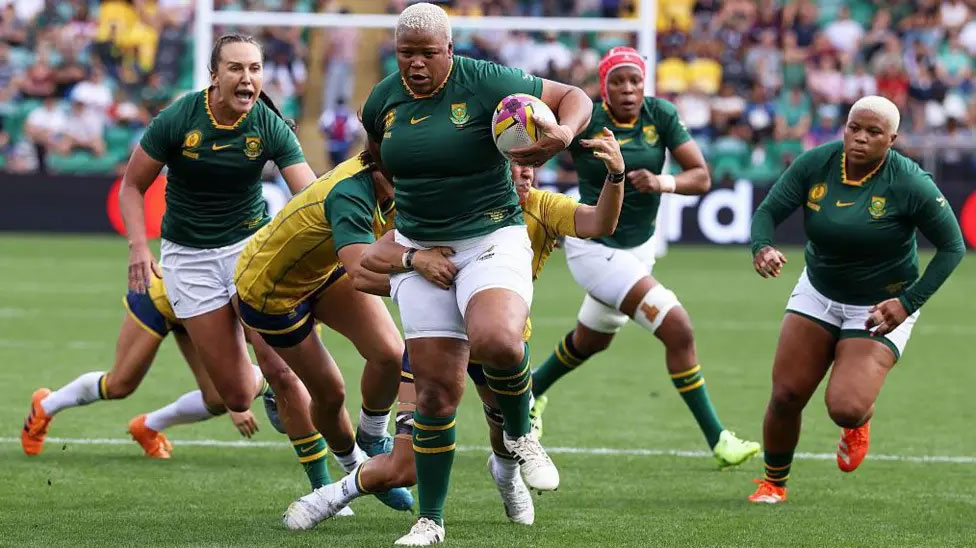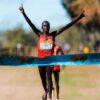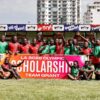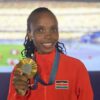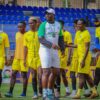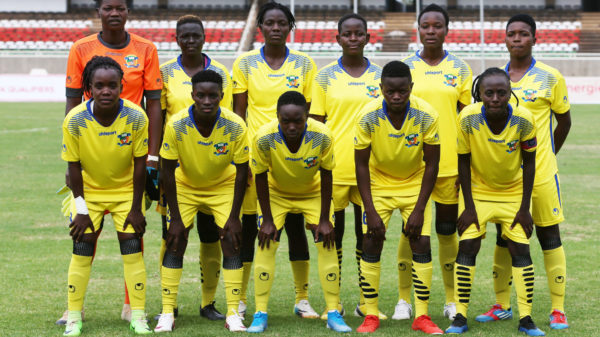LONDON, United Kingdom, Sept 12 – “Please, can my son swap jerseys with you? He speaks so highly of you, and it would be his dream.”
Number eight Aseza Hele received the message on social media before South Africa played their final pool game at the Women’s Rugby World Cup against France.
The 30-year-old struggled to comprehend why a young boy from England wanted the shirt of someone from the Eastern Cape of South Africa.
A hat-trick of tries against Brazil, followed by another score in a win over Italy that sent South Africa’s women into the World Cup quarter-finals for the first time, was why.
And Hele, a destructive runner who has been one of the stars of the tournament, was happy to oblige.
“When we finished playing [against France], I saw a big sign saying, ‘Hele, can I swap shirts with you?'” Hele told BBC Sport.
“I asked him to come through, and I said I’d meet him at the gate when I came out.
“I didn’t swap with any of the French girls because I had kept my shirt for him. And when I got there, he was waiting and smiling. That really warmed my heart. I thought ‘Aseza, you are doing good’.
“I’ve inspired young boys, not just girls. It warmed my heart to make someone’s dream come true.”
Once Hele finished that sentence, the tears started.
That moment in Northampton signified how far not only Hele has come, but South African women’s rugby as a whole.
Hele grew up in the same neighbourhood in Port Elizabeth as the Springboks’ two-time World Cup-winning men’s captain Siya Kolisi.
A place she described as one where a lot of “deep, deep things” happen.
Raised by her grandmother, Hele only started playing rugby in 2014, after joining a training session as a way to do some further running to stay fit for netball.
An injury meant an extra player was needed, and Hele was told that whatever happens, “just go forward”. She hasn’t looked back since.
A first Springbok cap came five years later, followed by her first World Cup appearance in 2022.
“Rugby has changed my life. I am the person I am today because of where I came from and the choices I made,” she added.
“Now, I’m able to feed my family because of rugby. I have my car because of rugby. My first flight was because of rugby.
“I didn’t even dream of this, and now I’m playing with the big dogs, and I am the underdog.”
‘A miracle can happen’

The women’s team lacks the same player pool, investment, and infrastructure as the men’s side in South Africa.
They are rarely favourites, unlike the four-time world champion Springboks.
Siya Kolisi regularly attends Springbok Women matches and training sessions, with his plea on social media for others to join him at WXV2 in Cape Town last year becoming a standout moment, external in the growth of the women’s game in South Africa.
A thrilling victory over Italy in York made history for the women’s team, but the work Kolisi has done behind the scenes has not gone unnoticed.
“He’s the warmest and nicest person ever. He cares about us and wants us to have what they have,” former Harlequins number eight Hele said.
“What he has, he likes to share. He’s sharing the love from his family with us so we can do well.
“His support has been massive for us. People came because he called them out on social media.
“I don’t know how we can thank him, he has done so much for us. From the bottom of our hearts, we love and appreciate him so much.”
Ranked 10th in the world, South Africa face world champions New Zealand in Exeter on Saturday.
As underdog stories go, it doesn’t get much tougher.
The Black Ferns come into the game off an impressive 40-0 win over Ireland and are eyeing a third straight World Cup.
But Hele has already gone from working as a cashier to playing at a Rugby World Cup – in her eyes, anything is possible.
“The only goal we had as a team was to make the quarters, so at least we ticked that box,” she added.
“We didn’t fail our people or ourselves, and we made ourselves proud, that is the most important thing.
“They are the big dogs, and we are the underdogs. Anything can happen. A miracle can happen.”
Beatrice Chebet is enjoying her reign as queen of the longer distance track events and heads to Tokyo as the world record-holder in both the 5000m and 10,000m.
Just as she did in Paris, the double Olympic champion is targeting two gold medals in Tokyo, and the 10,000m is first up on her schedule.
Four past winners of the 10,000m at the World Championships have also completed the double by winning the 5000m: Tirunesh Dibaba in 2005, Kenenisa Bekele in 2009, Vivian Cheruiyot in 2011, and Mo Farah in both 2013 and 2015. Cheruiyot was also the last Kenyan woman to claim the 10,000m title in 2015.
Although this will be the first time Chebet has contested the 10,000m at the World Championships, she’ll still start as one of the big favourites as she takes on defending champion Gudaf Tsegay.
Chebet, the first woman to break the 29-minute barrier in the 10,000m by clocking 28:54.14, secured her selection for Tokyo after finishing third at the Kenyan Trials, which was won by Janeth Chepngetich. Agnes Ngetich, the runner-up in that race, completes the Kenyan team.
Ngetich, 24, is the first woman to run 10km inside 30 minutes in a women-only race, clocking 29:27. Having set PBs on the track this year of 14:01.29 for 5000m and 30:27.38 at 10,000m (the latter at altitude), she’ll be hopeful of improving on her sixth-place finish from Budapest two years ago.
Chepngetich, the current world leader, is the African Games champion and has a PB of 30:04.97. This will be her senior global championships debut.
Tsegay has earned numerous medals across the past three editions of the World Championships, taking 1500m bronze in 2019, 5000m gold and 1500m silver in 2022, and 10,000m gold in 2023. In fact, the Paris 2024 Olympic Games was the first global championships in seven years from which Tsegay came away empty handed, so she’ll be hoping for a better experience in Tokyo.
The 28-year-old has shown superb form this year across a range of distances, clocking a mile PB of 4:11.88 along with season’s bests of 3:50.62 and 14:04.41 for 5000m.
She leads a strong Ethiopian line-up that also includes Ejgayehu Taye, bronze medallist in Budapest two years ago, Fotyen Tesfay and Tsigie Gebreselama.
In May, Tesfay broke the Berlin Half Marathon course record with a time of 1:03:35, the fifth-fastest performance in history. Both she and Gebreselama will participate in their first World Championships
Nadia Battocletti is also a strong medal prospect. The Italian bagged Olympic silver at this distance last year, finishing just 0.10 behind Chebet. This year she has set national records at 5000m (14:23.15), 3000m (8:26.27), 1500m (3:58.15) and 5km (14:32).
USA will be represented by Emily Infeld, Elise Cranny and Weini Kelati Frezghi, while other contenders include Kazkhstan’s Daisy Jepkemei, Great Britain’s Calli Hauger-Thackery and Japan’s Ririka Hironaka.

